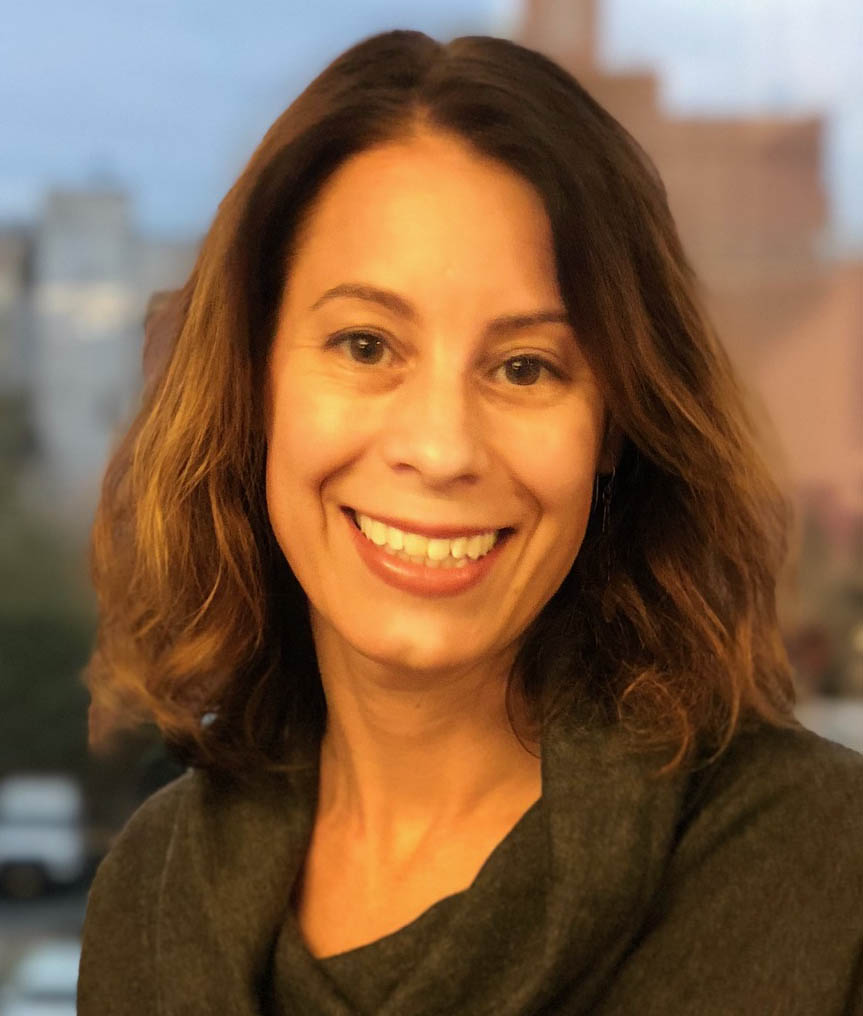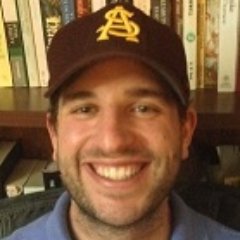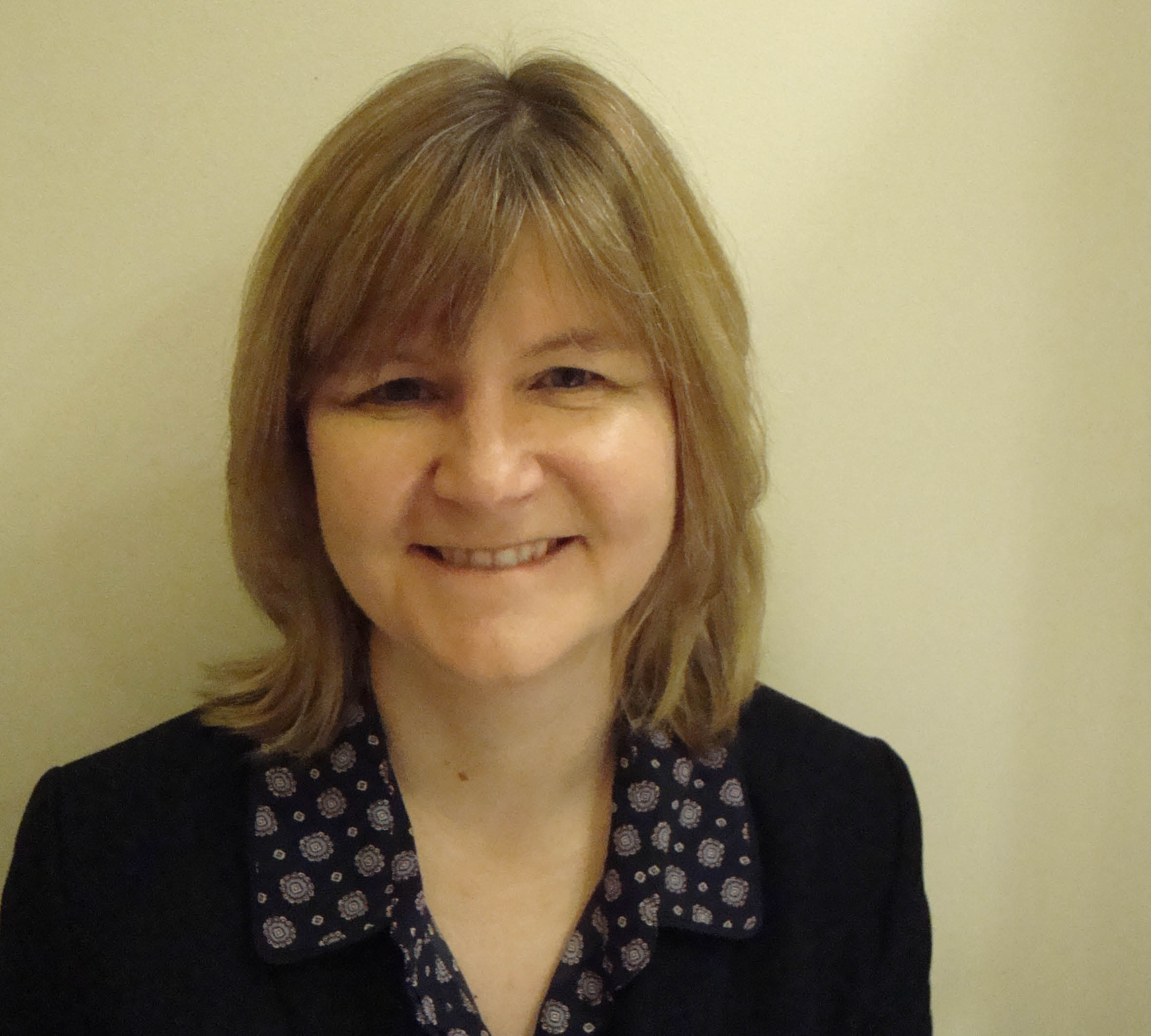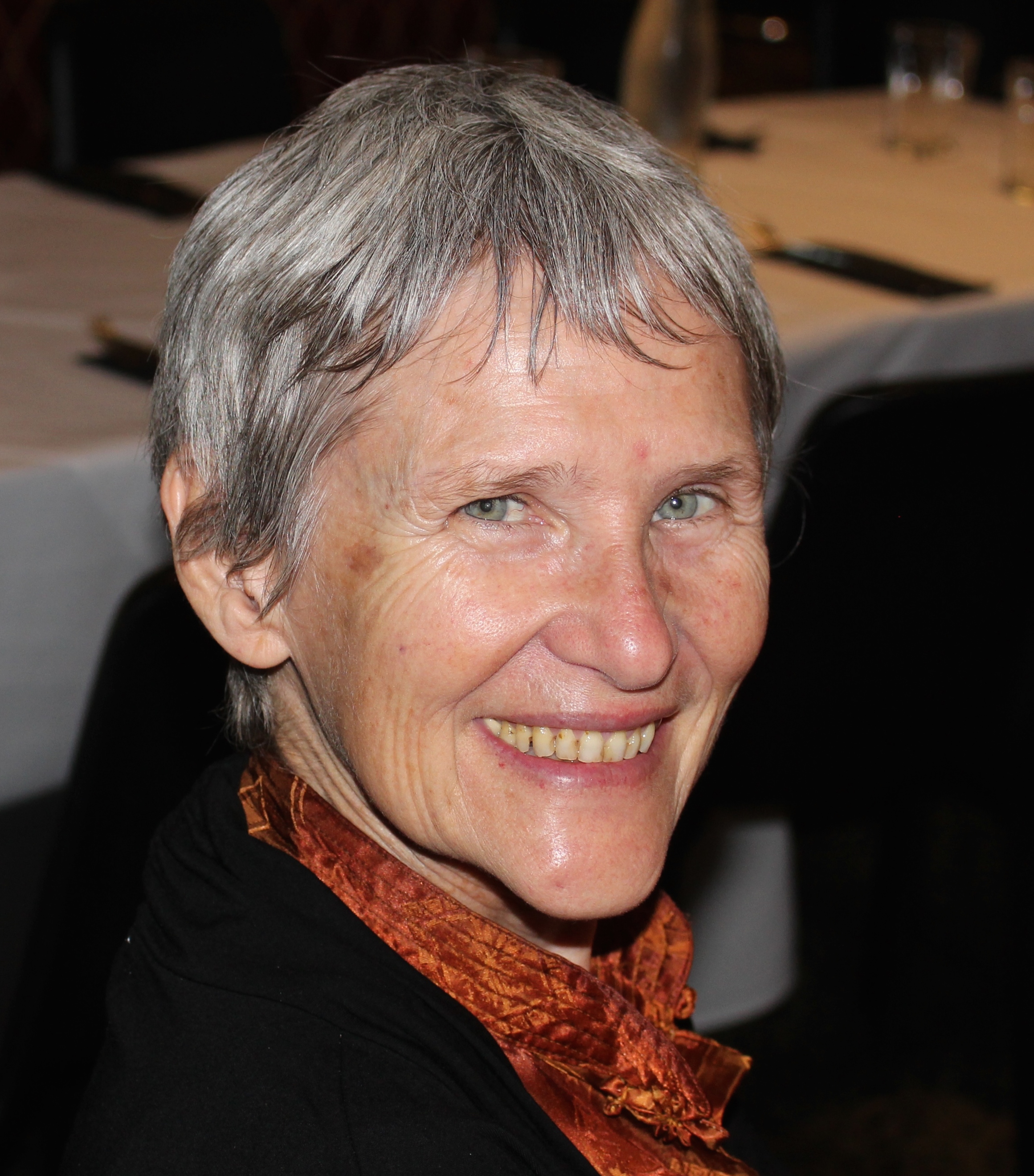Meet Our Authors

Amy Rebecca Gansell, PhD
CyberResearch in the Ancient Near East and Neighboring Regions - Brill
1. Would you mind telling us a little bit about yourself and what your book is about?
2. How did you get to know Knowledge Unlatched and how are you in contact with us?
3. What was your motivation to join to publish your book OA and be part of the Knowledge Unlatched Collection?
4. And leading on from the last question, what would you like to see as an impact from your participation in the KU Program?
I'm an art historian, specialized in Ancient Near Eastern Art. My research covers the art, architecture, and archaeology of the Levant, Turkey, Iraq, and Iran. I'm involved in both 'traditional' research and what is classified as 'digital humanities'. I firmly believe that using digital techniques can help to unlock ancient history, and this book, CyberResearch in the Ancient Near East and Neighboring Regions (Brill, 2018), which I co-edited with Vanessa Bigot Juloux and Alessandro Di Ludovico, showcases some of the most innovative, current research in this field. All of the papers are intended to be accessible to non-ancient specialists as well as to non-digital specialists. That is, we hope a computer scientist could gain technical insight while reading a chapter about ancient mythology, while a literature student would benefit (and not be discouraged by technicalities) from reading the same chapter. To support such a broad readership, the volume includes extensive glossaries and indices.
2. How did you get to know Knowledge Unlatched and how are you in contact with us?
We learned about KU when our publisher, Brill, nominated us for the KU Select List. We were not previously familiar with KU, but the more we learned about it, the more excited we were to pursue this opportunity. When we found out that we were selected for the List we were so happy, and truly honored. We are especially proud of our authors, whose excellent contributions are what make this volume.
3. What was your motivation to join to publish your book OA and be part of the Knowledge Unlatched Collection?
Indeed the opportunity be part of the KU Collection was highly motivating -- it really inspired us to pursue excellence on all fronts and to make sure the project progressed as expediently as possible. We realized that if we could publish our book OA with KU, we could serve a very broad and diverse readership. We hope to reach students, scholars, people in professional sectors, and interested lay persons around the world. Also, because much of the research is so cutting-edge technologically, it is important that it is disseminated as quickly as possible, and OA provides automatic access, before a book can even get on a physical shelf. It also provides great relief to researchers, who no longer need to wait to 'get a book' but can jump into a text spontaneously, anywhere, anytime.
4. And leading on from the last question, what would you like to see as an impact from your participation in the KU Program?
Through this book, we hope to motivate new research, new collaborations, and new conversations about the ancient world and digital research methods. Most fundamentally, we hope to inspire passion for antiquity and for the extraordinary potential of CyberResearch.

Bradley Irish
Emotions in the Tudor Court - Northwestern University Press
1. Would you mind telling us a little bit about yourself and what your book is about?
2. How did you get to know Knowledge Unlatched and how are you in contact with us?
3. What was your motivation to join to publish your book OA and be part of the Knowledge Unlatched Collection?
4. And leading on from the last question, what would you like to see as an impact from your participation in the KU Program?
I’m an assistant professor of English at Arizona State University, where I study early modern literature and culture – with a particular focus on the history of emotion. My book Emotion in the Tudor Court: Literature, History, and Early Modern Feeling focuses on sixteenth-century English courtiers – people in the political orbit of monarchs like Henry VIII and Elizabeth I – and argues that we can understand both them and the texts they produced by thinking about the emotions that animate them. The history of emotion is a booming field in the humanities, and this project contributes to our growing understanding of how emotion works in Renaissance England. My book is unique, however, in the fact that it doesn’t only historicize emotion in the period – that is, tell us how early modern subjects understood emotion – but instead also draws heavily on the modern psychological sciences to analyze the emotional world of the past. Emotions, evidence increasingly suggests, are the products of both nature and culture, and I thus employ a wide interdisciplinary approach to understand how they functioned 400 years ago.
2. How did you get to know Knowledge Unlatched and how are you in contact with us?
My publisher, Northwestern University Press, nominated the book for KU Select 2017, and that’s how I became aware of Knowledge Unlatched. When I learned about KU’s vitally important mission, I instantly knew that I wanted my book to be a part of it, and was lucky enough to have it funded and unlatched. The KU team has been fantastic throughout the entire process, and was always there to answer my questions as things unfolded.
3. What was your motivation to join to publish your book OA and be part of the Knowledge Unlatched Collection?
I wanted my book to be Open Access because I, like the KU team, believe that scholarly materials should be freely available to everyone, everywhere. As a scholar, I write with the hopes of sharing my enthusiasm for early modern literature and culture with others – and I don’t want there to be any barrier between the book and those who might find its contents interesting.
4. And leading on from the last question, what would you like to see as an impact from your participation in the KU Program?
By being a part of KU, my book will reach a much wider audience that it otherwise would with traditional publishing alone. But I also hope that my participation in the program will, in some small way, help raise awareness about OA possibilities for others in my field. The more research that is OA, the better it is for all of us!

Catherine O'Brien
Martin Scorsese's Divine Comedy - Bloomsbury
1. Would you mind telling us a little bit about yourself and what your book is about?
I taught Modern Languages (French and German) and Film Studies at Kingston University (UK) from 1989 until 2017. Since taking early retirement, I am now Co-Director of the Centre for Marian Studies (currently located at the University of Roehampton, UK).
2. How did you get to know Knowledge Unlatched and how are you in contact with us?
3. What was your motivation to join to publish your book OA and be part of the Knowledge Unlatched Collection?
4. And leading on from the last question, what would you like to see as an impact from your participation in the KU Program?
I taught Modern Languages (French and German) and Film Studies at Kingston University (UK) from 1989 until 2017. Since taking early retirement, I am now Co-Director of the Centre for Marian Studies (currently located at the University of Roehampton, UK).
My book, entitled Martin Scorsese’s Divine Comedy: Movies and Religion, draws on the structure of Dante’s famous poem to explore Scorsese’s feature films from Who’s that knocking at my door (1967-69) to Silence (2016). It takes very seriously the oft-quoted words of the director himself: ‘My whole life has been movies and religion. That’s it. Nothing else.’
Engaging with debates at the heart of religious studies, theology, literature and film, this book goes beyond existing studies of Scorsese’s work, to address issues of sin and salvation within the context of wider debates in eschatology and the afterlife.
2. How did you get to know Knowledge Unlatched and how are you in contact with us?
My book was published by Bloomsbury. I believe that the publisher offered the book to Knowledge Unlatched on a list of twenty titles, and this was one of the three that was selected in 2017.
3. What was your motivation to join to publish your book OA and be part of the Knowledge Unlatched Collection?
I am all in favour of the work that Knowledge Unlatched is carrying out and I am delighted that the book was chosen.
4. And leading on from the last question, what would you like to see as an impact from your participation in the KU Program?
It is wonderful that academic books (which often come at a high price) are being made freely available to anyone who is interested. I'd obviously be delighted if people found my research to be useful. So I hope that the KU Program goes from strength to strength.

Anitra Nelson
Small is Necessary - Pluto Press
1. Would you mind telling us a little bit about yourself and what your book is about?
I am an activist-scholar, Associate Professor at the Center for Urban Research (CUR) at RMIT University in Melbourne (Australia). My book Small is Necessary: Shared Living on a Shared Planet combines my activist and research interests at CUR, where I have researched questions around housing affordability and sustainability.
2. How did you get to know Knowledge Unlatched and how are you in contact with us?
3. What was your motivation to join to publish your book OA and be part of the Knowledge Unlatched Collection?
4. And leading on from the last question, what would you like to see as an impact from your participation in the KU Program?
I am an activist-scholar, Associate Professor at the Center for Urban Research (CUR) at RMIT University in Melbourne (Australia). My book Small is Necessary: Shared Living on a Shared Planet combines my activist and research interests at CUR, where I have researched questions around housing affordability and sustainability.
The ‘small’ in Small is Necessary relates to space. I argue that small is a sound principle for us all to follow in aiming for one planet lifestyles, especially given that in the Global North, over the past century, the average sizes of households tended to halve as dwelling sizes doubled. By choosing modest, well-designed small dwelling spaces we save on embodied energy and materials (in construction) as well as ongoing energy and maintenance costs.
While environmental efficiency is uppermost, we can also make our dwellings and lifestyles more affordable by living small. However, the most extreme cases, say tiny houses and micro-apartments, expose a weakness in the small principle. If we all lived in such accommodation servicing just 1-2 residents, we might end up increasing all the minutiae of toilets, kitchen and laundry facilities and risk consuming more outside our dwellings.
This is where sharing comes in. Expanding households creates eco-efficiencies of sharing between members and helps us to achieve one planet lifestyles. Joint (shared) households, land sharing, eco-cohousing, ecovillages and eco-communal squats are all examples of ‘eco-collaborative housing’. The major part of the book discusses futures for such housing and lifestyles.
For almost a decade I lived in two distinctive Australian housing co-operatives where around 20 and 50 residents shared their living spaces to varying extents extent and in self-managed ways. Then I started studying such communities and visiting ones overseas too. This is how my politics, personal experiences, and research have intermingled to produce this book.
2. How did you get to know Knowledge Unlatched and how are you in contact with us?
In May 2017, my publisher Pluto Press asked if I would agree to offer my book for selection to be published on an Open Access (OA) basis, under a Creative Commons Licence, to academic libraries worldwide in the ‘Knowledge Unlatched’ (KU) program. They explained that they had collaborated with KU for a few years, had found the scheme commendable, and encouraging rather than detracting in terms of sales. Pluto referred me to the KU website: ‘Overall, we think that working with Knowledge Unlatched benefits readers, the publisher and the author, and we very much hope that you agree.’ So now I am a KU author.
3. What was your motivation to join to publish your book OA and be part of the Knowledge Unlatched Collection?
I agreed because I support OA. OA fits in a strong scholarly and literary tradition, by way of an example the ‘Republic of Letters’ has been fostering creative and intellectual discourse for centuries. Although all OA processes are inevitably controversial, I think that selection processes, such as those performed by the contributing publishers and KU Program, help in keeping standards high.
4. And leading on from the last question, what would you like to see as an impact from your participation in the KU Program?




